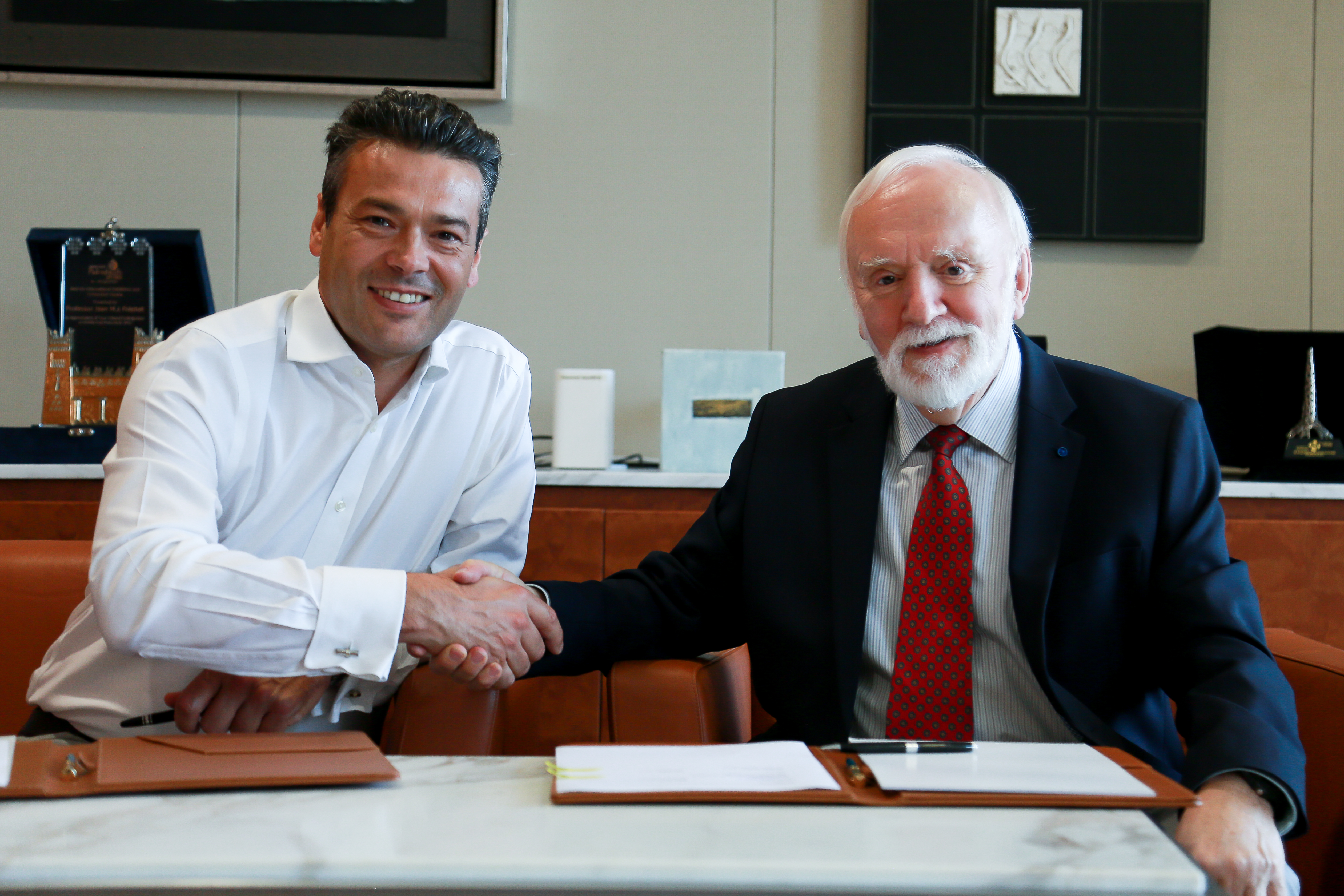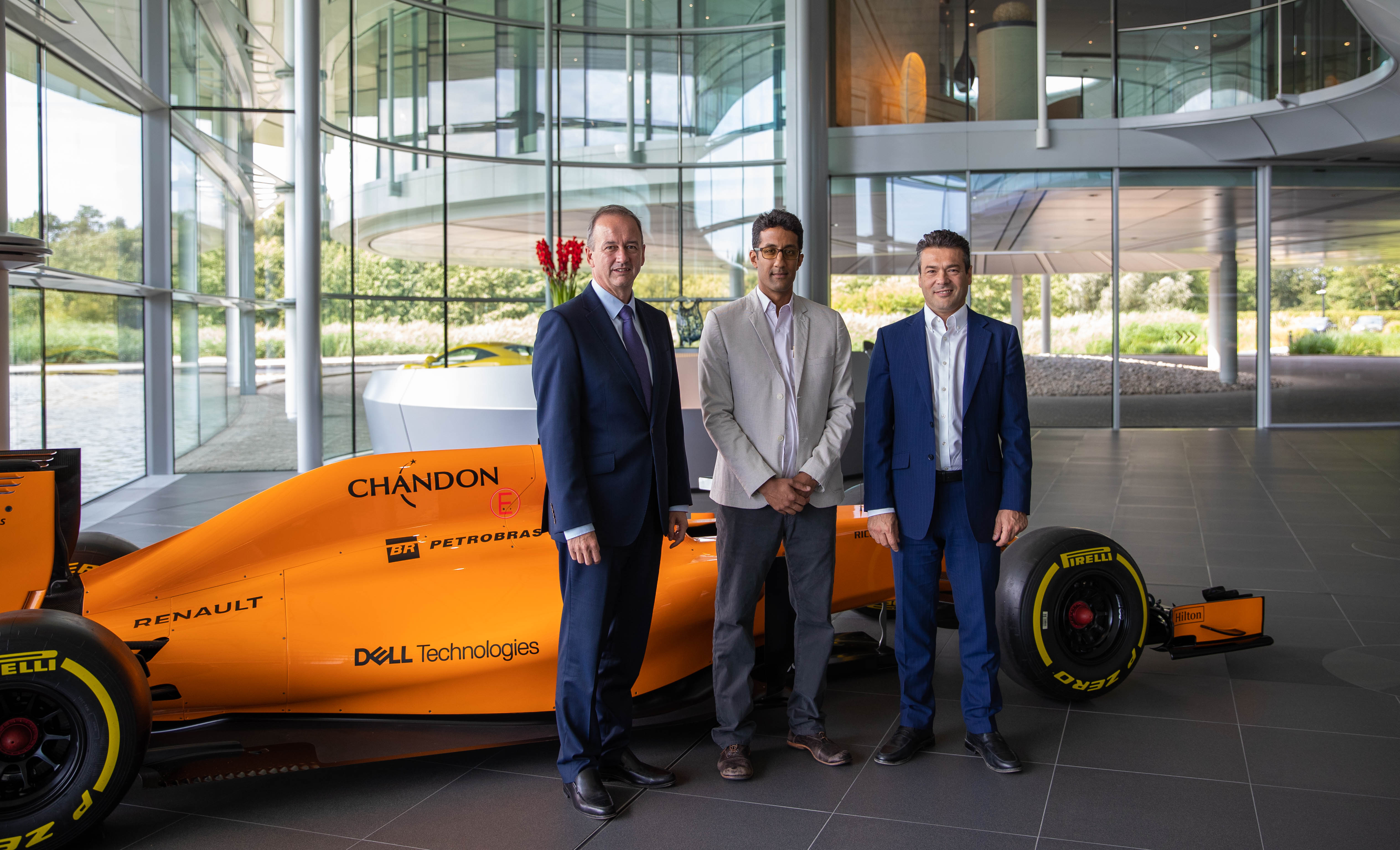KAUST partners with McLaren Racing on R&D

John Cooper (left), chief business officer of McLaren Racing, and Jean Frechet, KAUST senior vice president for Research, Innovation and Economic Development, sign the five-year R&D agreement between KAUST and McLaren Racing. File photo.
McLaren Racing and KAUST signed a five-year research and development (R&D) agreement focused on extreme performance technology.
The partnership aims to advance research in the areas of computational fluid dynamics (CFD), machine learning, fuels and lubricants, advanced mathematics and sensors and electronics.
"This partnership underlines our commitment to supporting global STEM advancements," said Jonathan Neale, chief operations officer of McLaren Group. "KAUST is a leading research and education institution in these fields and mirrors our core values. McLaren Racing is part of a world-leading technology group of companies and is engaged in Formula 1 across the globe. Together with KAUST, we can push science and technology in our mutual interest areas to new limits."
Less than 10 years after the University's establishment in 2009, KAUST has produced promising solutions in the areas of extreme performance technology, with scientists at the University working on research, engineering and innovation challenges that impact Saudi Arabia and the world.

(From left to right:) Jonathan Neale, chief operations officer of McLaren Group; Mani Sarathy, KAUST associate director of the University's Clean Combustion Research Center; and John Cooper, chief business officer of McLaren Racing. McLaren Racing and KAUST recently signed a five-year R&D agreement. File photo.
The collaborative learning environment for knowledge transfer across multiple research areas is also an important feature of McLaren Group and its fellow subsidiary companies.
"The partnership is a symbol of international collaboration between two of the world's leading science and technology organizations. We are looking forward to McLaren and KAUST working together to create the technology and innovation of tomorrow," said John Cooper, chief business officer of McLaren Racing.
The R&D collaboration will also open new doors to talent development for KAUST graduate students through research, internships, engineering forums and other opportunities to expand knowledge and skills for the future marketplace.
"McLaren's expertise both on and off the track makes them a perfect partner for KAUST. Our Clean Combustion Research Center is creating sustainable mobility solutions for tomorrow's world. Working with McLaren will enable us to get even closer to achieving that goal," said Mani Sarathy, associate director of the KAUST Clean Combustion Research Center. "Formula 1 cars are essentially a testing ground for our technology, so the potential for translating scientific discoveries to real-world solutions is significant."
Related stories:
-
Dow Innovation Center Inaugurated at KAUST
-
Developing the Kingdom's talent
-
KAUST launches Fugro Center of Excellence for Marine Technology
- Agreement signed for building of SaudiVax R&D Vaccine center
-
Extending collaboration at 2018 Innovation to Impact Forum

